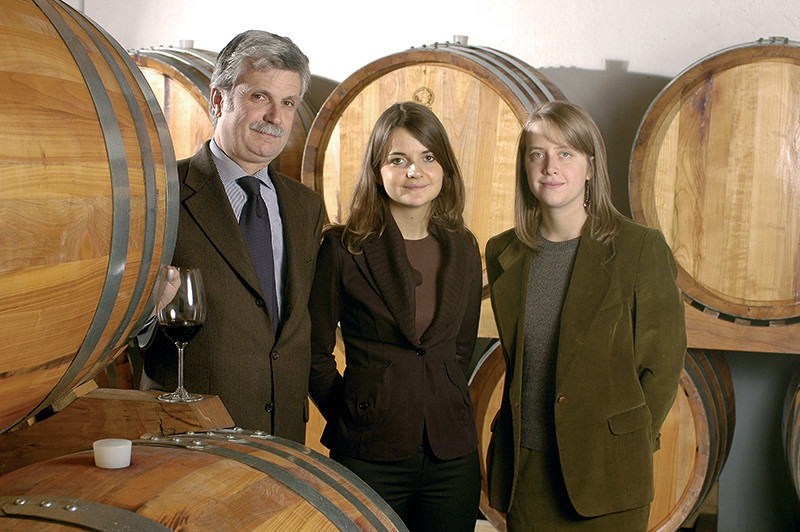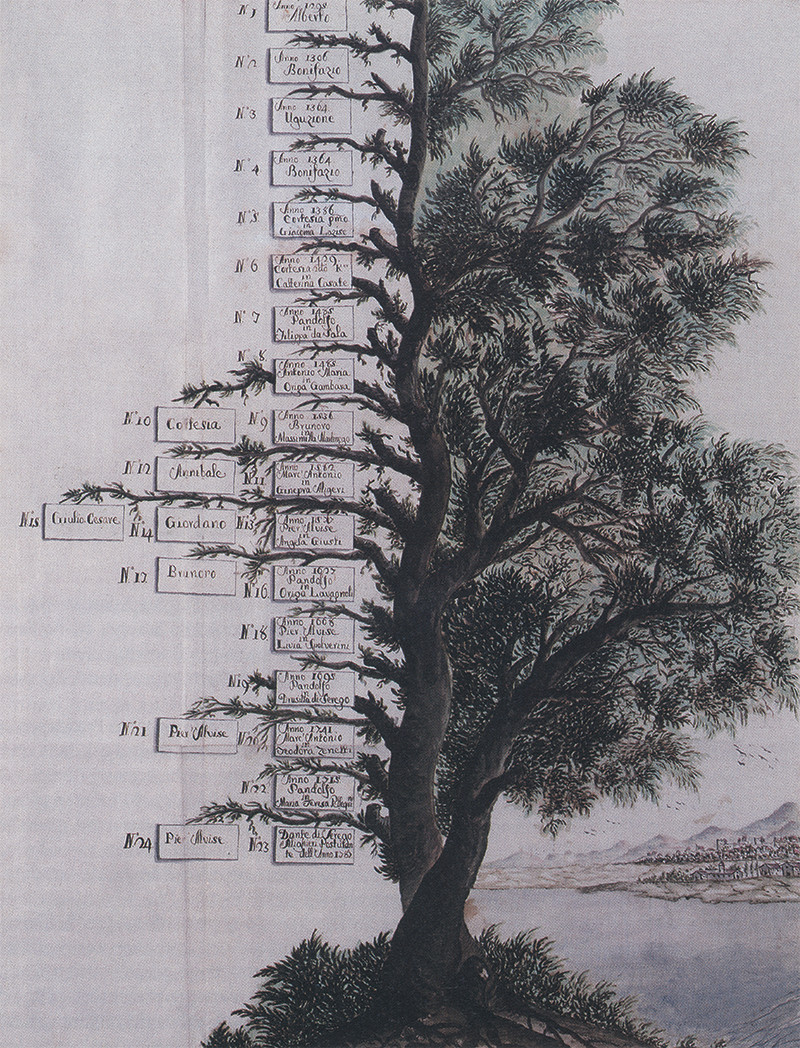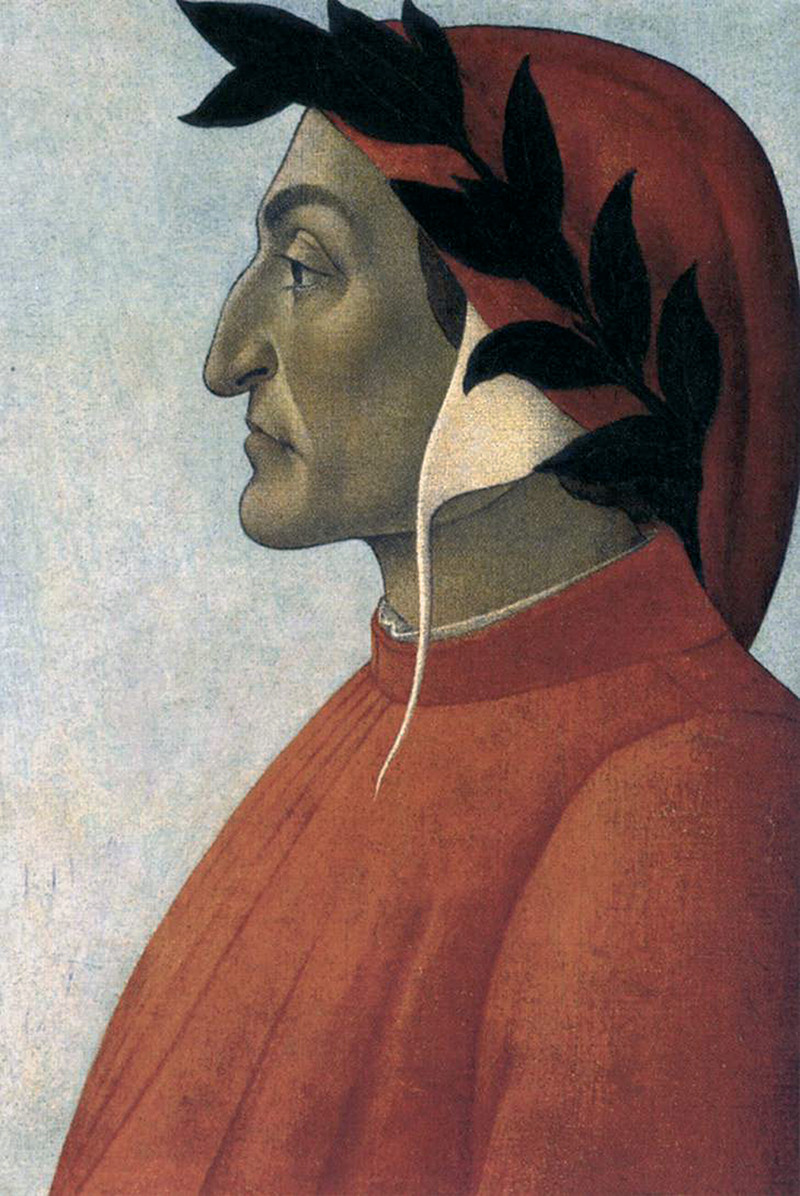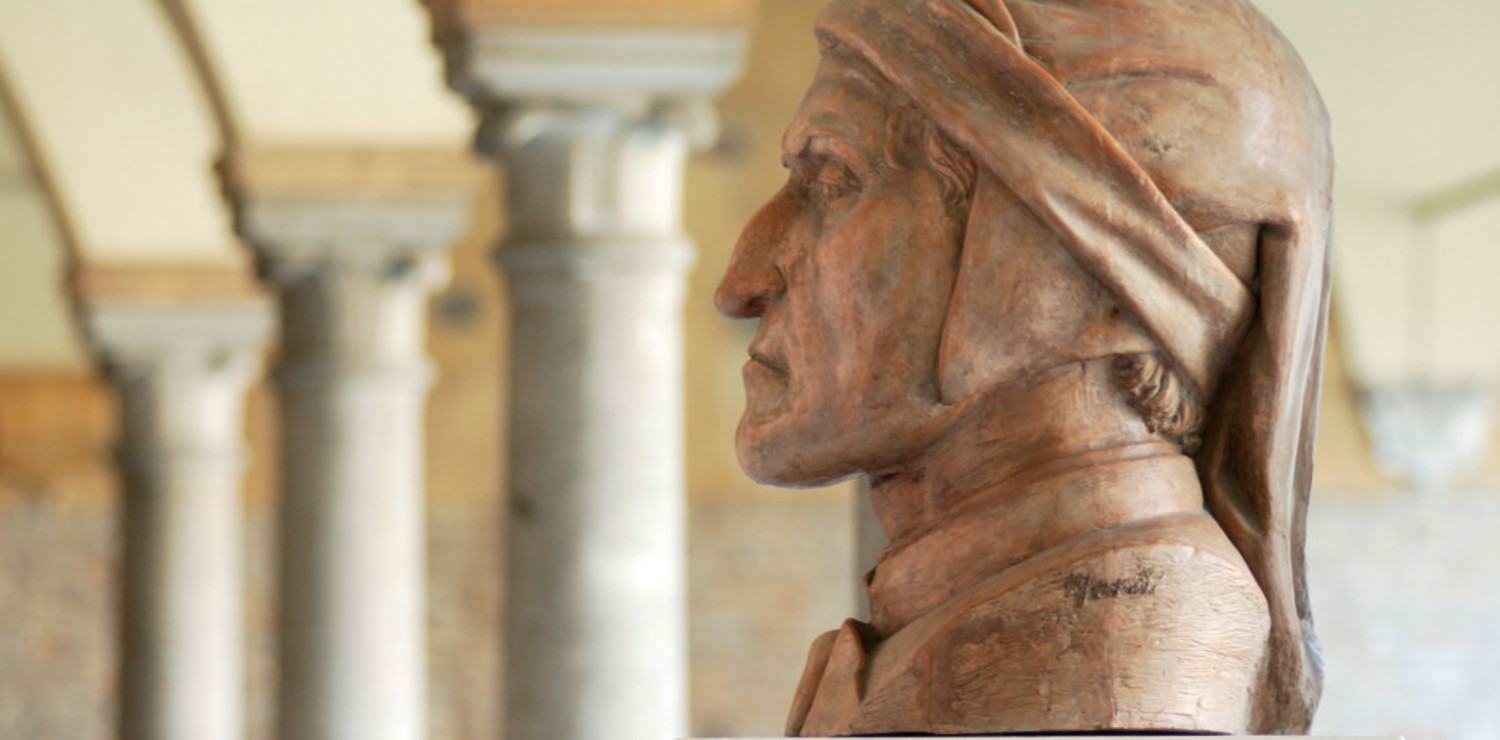Where do Dante Alighieri's descendants live and who are they?
Here are those who, even now, can boast of being descendants of the greatest Italian poet
Those who can boast to be the descendants of the most famous Italian poet, have not been living in Florence for many centuries now, but in Verona; they retain, however, a strong tie with their old home town. We will try to explain why.
 Pieralvise Serego Alighieri and his daughters Massimilla and Marianna
Pieralvise Serego Alighieri and his daughters Massimilla and MariannaThe several Tuscan families, especially the Florentine ones who in Dante’s time established themselves in Verona, city governed at the time by the Della Scala family, belonged to two branches. The first one consisted, mainly, of money lenders and bankers, while the second branch brought to Verona the families of political refugees. These, belonging to the White Guelph faction, had been banned from Florence after their opponents (Black Guelphs) had taken possession of the town in 1302. These Tuscan migrants led a very active life in Verona and, here, they gave origin to their family lineage. Among them we like to mention members of the Ervari, Uberti (Farinata’s descendants), Boncristiani, Neri Barucci, della Seta and del Bene families and many others.
It is indeed in Verona that Dante, a refugee from Florence, found a worthy welcome. Cacciaguida himself, the poet’s great-great-grandfather, forecasts, in the 17th canto of the Paradiso, Dante’s exile in Verona: “Your first shelter will be offered by the gran Lombardo’s generosity”.
It is well known that the Florentine poet arrived in Verona in 1304. Here, Dante wrote his “Convivio” and the following year, the “De vulgari eloquentia”. He came back to Verona in 1312 and remained through 1318 working at some parts of the “Commedia” and at the “De Monarchia”. His last stay in Verona was in 1320, one year before his death happened, as well known, in Ravenna in 1321.
 Genealogical tree of the Serego Alighieri family
Genealogical tree of the Serego Alighieri familyDante left, therefore, Verona for Ravenna, but his descendants remained in Verona. As a matter of fact, his son Pietro, judge and official authority of the town (he died in 1364) came back to Verona in 1322 and married Jacopa, the daughter of Messer Dolcetto della Seta, also a political refugee from Pistoia. Pietro who was a custodian, together with his brother Jacopo, of his father’s manuscripts and one among the first to expound the Commedia, had eight children: Dante II, Bernardo, Jacopo, Autruia, Elisabetta, Alighiera, Gemma and Lucia.
The first born, Dante II, in turn married Costanza Maccaccaro as shown in the family tree. Dante II’s offspring was Leonardo, who married Jacopa Verità and gave birth to Pietro III, father, in his own turn, to Dante III.
From Dante III’s third born we have Pietro IV, father to Ginevra, who is the last direct descendant from her father male lineage. Ginevra Alighieri, last daughter of her family, married, in 1549, the noble Marcantonio Serego from Verona, who belonged to the ancient stock going back to the 11th century, son of Brunoro and Massimilla Martinengo.
And in order not to have the illustrious patronymic of the Alighieri die away, the children from this matrimony were named, and are still named, Serego Alighieri. Marcantonio and Ginevra’s marriage was very fruitful and blessed by fifteen children, nine sons and six daughters. It was, thus, ensured the offspring and the name of the Divine Poet. Of Ginevra Alighieri’s nine sons, only PierAlvise carried on the dynasty through his son Pandolfo. From him through nine generations, as shown on the family tree, we reach Dante’s progeny of today. Count Pieralvise Serego Alighieri, son of count Dante (died in 1986) with whom he shared the name, a custom never extinguished in his lineage, is head of the family and repository of its traditions. Pieralvise Serego Alighieri is a dynamic young entrepreneur who looks after the family’s enterprise, the beautiful Gargagnago estate in Valpolicella, producer of the same famous wine.
 Dante Alighieri
Dante AlighieriThe Gargagnago estate, is among other things, a place for meetings and conventions and well known for the good climate and excellent wine. The Count has created a farm holiday center which attracts many foreign tourists who like the idea of being entertained by Dante’s descendants. They, in their turn, are diligent custodians of the family’s traditions. He presides over several Dantesque societies in Florence and throughout Italy. A Florentine on his mother’s side- she was Giovanna Correga Bertolini, marchioness of ancient Genoese stock- Pieralvise inherited from his father the family’s veneration for their famous ancestor. From his marriage with the Veronese Francesca Chiarelli he has two daughters: Massimilla who studies cultural heritage sciences in Verona and Marianna who studies economics in Milan. Count Pieralvise has also some cousins among whom Count Sperello, married to Carla Passi and father to Pietro and Laura and the Counts Brunoro: Francesco and Gregorio Serego Alighieri.









